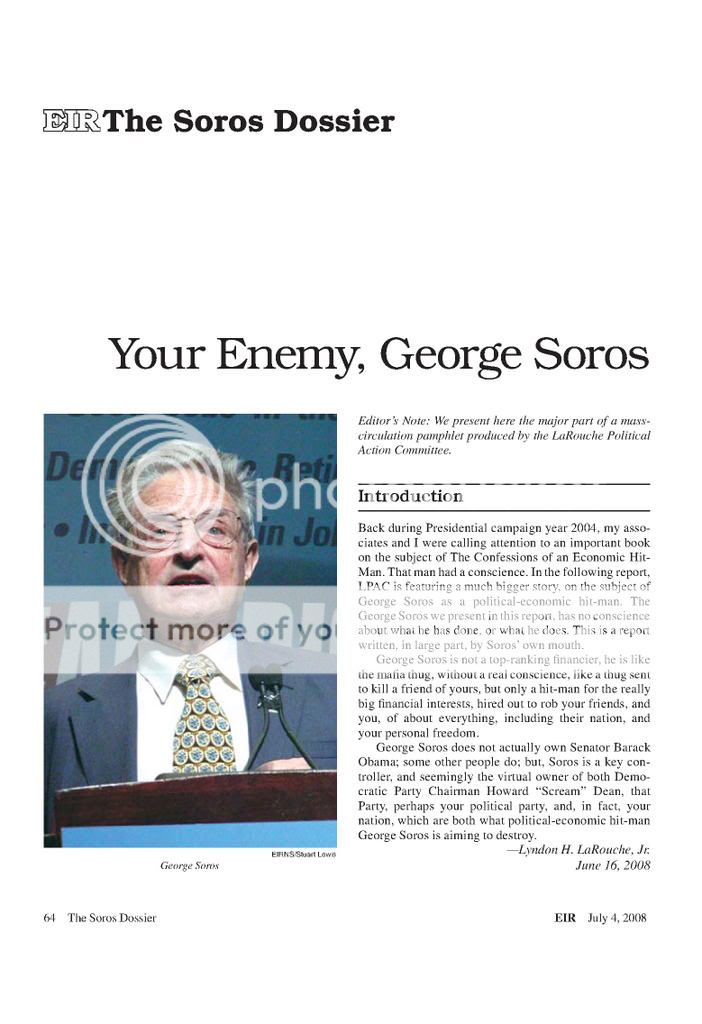สิ่งที่ประเทศไทยต้องเจอในอนาคตอันใกล้
+3
att
ฅนไท
sunny
7 posters
หน้า 8 จาก 9
หน้า 8 จาก 9 •  1, 2, 3, 4, 5, 6, 7, 8, 9
1, 2, 3, 4, 5, 6, 7, 8, 9 
 Re: สิ่งที่ประเทศไทยต้องเจอในอนาคตอันใกล้
Re: สิ่งที่ประเทศไทยต้องเจอในอนาคตอันใกล้
Chapter 11
Consolidation of
Terrorism
Whereas a democracy is inspired by certain basic democratic principles, and a Communist
dictatorship is erected upon the tenants of Marxism, so Catholic
totalitarianism, must be promoted by the doctrines enacted by the Catholic
Church. Because of this, Diem became determined to create a model Catholic State
in Southeast Asia. The tenets which inspired him most were embodied in the
social teachings of three of Diem's favorites, Pope Leo XIII, Pope Pius IX and
Pope Pius XI.
Diem took the teaching of these Popes literally. For instance, he firmly held, as Pope Pius IX
declared in his Syllabus of Errors, "that it is an error to believe
that the church is not a true and perfect society." For the Church to be
perfect, the state must be integrated with her so that the two become as one,
because quoting again Pius IX "it is an error to believe that: the Church ought
to be separated from the State and State from the Church" a principle, which
went totally against the Constitution of the U.S., his sponsor.
Elements preventing such union, therefore, had to be eliminated. These meant the
Protestants, at that time numbering about 50,000, mostly Baptists and Seventh
Day Adventists. Diem had planned to eliminate them chiefly via legislation by
prohibiting their missions, closing their schools, and refusing licenses to
preach, or have religious meetings. This he would have done legally in
accordance with the future concordat to be signed with the Vatican, modeled upon
that of Franco's Spain. Such anti-Protestant legislation would have been
enforced once the war was over and a Catholic state had been firmly
established.
That this was no mere speculation, curiously enough was confirmed at that period in London,
England. The present author at that time lived only a few hundred yards from the
Embassy of South Vietnam, Victoria Road, Kensington. He called at the embassy a
number of times to find out the reason for the Diem regime's "harassing certain
disruptive Buddhist sects." Documents, all official, were given justifying the
harassment. The official explanation was that the Buddhists were "prosecuted"
not on religious but on political grounds. When the present author mentioned the
Protestants, an official explained that they were a special case. Since they
were Christians, their "prosecution" would be justified, once the domestic
situation had become normal, on the ground that a state—in this case the
Catholic State of South Vietnam—had to be inspired by the tenets upon which it
is founded. A perfect Catholic State, therefore, could not tolerate Protestants
nor Christians who did not believe in the uniqueness of the Catholic Church.
This, it should be pointed out, was at the time when Pope John XXIII had
launched the era of ecumenism. The high official who gave the explanation should
have known, since he was none other than President Diem's own brother, also a
staunch
Consolidation of
Terrorism
Whereas a democracy is inspired by certain basic democratic principles, and a Communist
dictatorship is erected upon the tenants of Marxism, so Catholic
totalitarianism, must be promoted by the doctrines enacted by the Catholic
Church. Because of this, Diem became determined to create a model Catholic State
in Southeast Asia. The tenets which inspired him most were embodied in the
social teachings of three of Diem's favorites, Pope Leo XIII, Pope Pius IX and
Pope Pius XI.
Diem took the teaching of these Popes literally. For instance, he firmly held, as Pope Pius IX
declared in his Syllabus of Errors, "that it is an error to believe
that the church is not a true and perfect society." For the Church to be
perfect, the state must be integrated with her so that the two become as one,
because quoting again Pius IX "it is an error to believe that: the Church ought
to be separated from the State and State from the Church" a principle, which
went totally against the Constitution of the U.S., his sponsor.
Elements preventing such union, therefore, had to be eliminated. These meant the
Protestants, at that time numbering about 50,000, mostly Baptists and Seventh
Day Adventists. Diem had planned to eliminate them chiefly via legislation by
prohibiting their missions, closing their schools, and refusing licenses to
preach, or have religious meetings. This he would have done legally in
accordance with the future concordat to be signed with the Vatican, modeled upon
that of Franco's Spain. Such anti-Protestant legislation would have been
enforced once the war was over and a Catholic state had been firmly
established.
That this was no mere speculation, curiously enough was confirmed at that period in London,
England. The present author at that time lived only a few hundred yards from the
Embassy of South Vietnam, Victoria Road, Kensington. He called at the embassy a
number of times to find out the reason for the Diem regime's "harassing certain
disruptive Buddhist sects." Documents, all official, were given justifying the
harassment. The official explanation was that the Buddhists were "prosecuted"
not on religious but on political grounds. When the present author mentioned the
Protestants, an official explained that they were a special case. Since they
were Christians, their "prosecution" would be justified, once the domestic
situation had become normal, on the ground that a state—in this case the
Catholic State of South Vietnam—had to be inspired by the tenets upon which it
is founded. A perfect Catholic State, therefore, could not tolerate Protestants
nor Christians who did not believe in the uniqueness of the Catholic Church.
This, it should be pointed out, was at the time when Pope John XXIII had
launched the era of ecumenism. The high official who gave the explanation should
have known, since he was none other than President Diem's own brother, also a
staunch

att- จำนวนข้อความ : 1075
Registration date : 08/10/2008
 Re: สิ่งที่ประเทศไทยต้องเจอในอนาคตอันใกล้
Re: สิ่งที่ประเทศไทยต้องเจอในอนาคตอันใกล้

Buddhist monks fight with police in front of the Saigon Ciag Minm Pagoda, protesting yet
another piece of legislation discriminating against them. President Diem was
determined to create a model Catholic state in South Vietnam and eventually in a
united North and South Vietnam. The model Catholic state had to be inspired
exclusively by the tenets of the Catholic Church. Diem's favorite tenets were
those of Pope Leo XIII, Pope Pius XI and Pope Pius XII, who had all declared how
the model Catholic state must eliminate all that was not Catholic. In South
Vietnam this included Buddhists as well as some 50,000 Protestants, mostly
Baptists, Evangelicals, Seventh Day Adventists, etc. The policy provoked
mounting discontent and demonstrations, some of them violent.
Catholic, Ambassador Ngo Dinh. Another official, a former Baptist, subsequently confirmed
that there existed already a blue print for the formal elimination of
Protestantism in a future United Vietnam.
That these were no mere theoretical plans for the future, was proved by the fact that Diem
started his program in earnest. Prior to eliminating any Protestant or Buddhist,
he had first to Catholicize the fabric of Vietnam. One most important section of
these is education. The Catholic Church is adamant on the subject.
To create a total Catholic State one has to shape its youth, the future citizens of
tomorrow. A tenet, which has created no end of trouble in many lands, including
the U.S. itself, with her problem of parochial aid and the claim of the Catholic
church for special educational exclusiveness. Since Diem had no restriction, he
saw to it that the command of his Church be strictly enforced.
In 1957, he instituted a Roman Catholic university at Dalat; by 1963, it had already over
500 students—the future intelligentsia of the country. Diem also made sure that
Catholic professors and teachers be given seats at two state universities, at
Hue and at Saigon respectively. The following year the Jesuits set up seminaries
in the same cities. The regime built 435 charitable institutions; between 1953
and 1963 Diem set up 145 middle and upper schools, of which 30 were in Saigon
alone, with a total of 62,324 pupils.
During the same period the Catholic Church in South Vietnam, from having only three upper
and middle schools in 1953, had multiplied them to 1,060 schools by 1963, a
brief period of only ten years.
Simultaneously to the above, Diem built 92,000 square meters of hospitals, charitable and
educational institutions; but 526,000 square meters of luxury residences and
Catholic Churches.

att- จำนวนข้อความ : 1075
Registration date : 08/10/2008
 Re: สิ่งที่ประเทศไทยต้องเจอในอนาคตอันใกล้
Re: สิ่งที่ประเทศไทยต้องเจอในอนาคตอันใกล้

U.S. troops enroute to Mekong Delta, stopped by a Buddhist procession of
some 3,000 monks. The Buddhists surged menacingly against the U.S. troops who
were ordered to train their weapons upon them. After several hours the riot
police intervened. The Buddhists felt justified in their insurgency because of
Diem's preferential treatment of Catholics. Catholic professors and teachers
were given seats at the two state universities of Hue and Saigon. The Jesuits
were permitted to set up seminaries with state protection and funds. Buddhist
schools and educational institutions received little or nothing but harassment.
Catholic schools multiplied from only three upper and middle schools in 1955, to
1,060 by 1963. Many Buddhists in the army deserted because of open Catholic
discrimination, creating disruption and despondency. Legislation which passed
was inspired by Papal teaching.
At the same time, Diem set to build his Catholic State upon the social doctrines of the
Popes. These, during the beginning our century, had inspired sundry social
movements which had caused deep repercussions in Europe. Most notable of all in
Italy. It was the spirit of such Papal social doctrines in fact, which had first
inspired Italian fascism, for setting up the Corporate State in Vietnam, but
with a veneer of contemporaneity and with certain modifications suitable to an
Asian country. To add an additional touch of originality, thereupon Diem
invented his own philosophy, derived not only from the teaching of the Popes,
but equally from a social farrago, first conceived by a group of Catholic
intellectuals, around 1930, when fascism was at its height and called
"personalism."
After his attempts to set up a corporate machinery, Diem started to pass laws to enforce
his plan. This entailed not only repressive legislation, but equally the use of
brute force.
Once more Diem found inspiration in certain papal teaching, that of Pope Pius IX, according to
whom, it is an error to believe that: "the church has not the power of using
force, nor has she any temporal power, direct or indirect." (Error No.
24—Syllabus of Errors). Justifying his religious credence with his personal
political ambition, Diem, during the ensuing eight years, became increasingly
dictatorial, disregarding ever more openly any democratic formality, flouting
any advise, becoming ever more impervious to any criticism, including the
criticisms of certain U.S. military and civil "advisors." Many of these sent
meaningful reports of what was going on to Washington, predicting disaster. The
Dulles-CIA-Catholic lobby however, saw to it that they never reached the right
quarters, beginning with President Eisenhower himself.
Diem's religious-political egocentrism meanwhile assumed fearful proportions. His
philosophy of "personalism" turned into a blatant personality cult on the par
with that promoted in Soviet Russia by Stalin and in Nazi Germany by Hitler. His
portraits invaded every corner of the land; absence of his image, even in
private homes, could render anyone suspect of opposition and hence liable of
sudden arrest, prison and detention camps. The personality cult, so typical of
the European dictatorships, reached such an extent that finally altars with his
portrait were erected in the street where the national anthem was played or sung
as a hymn of praise to Diem.
With the personality cult, there developed a fanatical hatred against any form of
opposition. The two are inseparable. This meant a relentless elimination of any
semblance of civil liberties or freedom of thought, religious and political.
Diem kept ever more strict personal control of the police, headed, as we have
already said, by one of his brothers. Security networks were multiplied and
toughened. Commando squads were formed. Riot control—always on the ready—were
trained with ruthless efficiency. It is of particular interest to the American
reader that the crack-model of the latter, were created, trained and toughened
up by the Southern Michigan University group, under the sponsorship of the CIA.
Blatant violations of civil liberties, of personal freedom, multiplied by the thousands.
Dissenters, of all ages and political or religious persuasion, were hauled off
to jail or to concentration camps. To better check the dissatisfied, every
peasant was compelled to carry an identification card. With the toughening of
the Diem regime, these dissenters were no longer the Communists or the
Buddhists. Catholics by now had also joined the opposition. These were the
Catholics Diem had originally lured away from the North. Thousands of them had
demanded that Diem keep his word. They demonstrated, asking for the land, homes,
and jobs which they had been promised. An ever increasing number finally said
that they wanted to be repatriated back to North Vietnam. Diem's response was
typical. The demonstrations were ruthlessly suppressed; any identifiable
individual, or group, whether Buddhist or Catholic, was arrested, jailed, sent
into a camp or even summarily shot.
It has been reckoned, and the figures although lacking any official confirmation are
considered to be concretely reliable, that during this period of terror—that is
from 1955 to 1960—at least 24,000 were wounded, 80,000 people were executed or
otherwise murdered, 275,000 had been detained, interrogated with or without
physical torture, and about 500,000 were sent to concentration or detention
camps. This is a conservative estimate.
The creation of a totalitarian Catholic regime was made to go on regardless. The opposition
from all sectors of the country increased. Strikes took place with ever
increasing frequency, chiefly because of the deteriorating economic situation.
In May, 1957, 200,000 workers demonstrated in Saigon alone. Next year May Day
1958, the demonstrators had increased to 500,000. There were strikes and
demonstrations throughout the country in subsequent years. The Catholics from
the North asked chiefly for repatriation. The state-machinery of suppression,
however, had become too efficient to be weakened by any resistance, whether of
an economic or political character. The native and American expertise directed
the control of the populace and of any individual dissension, having worked like
a miracle machine. It was thanks chiefly to this, that Diem felt confident he
would ride the storm in the streets, and it was also mainly thanks to such a
miraculous machine of repression, that Diem finally felt sufficiently strong to
undertake another measure, directed at the establishment of his Catholic
Vietnam.
He boldly turned to a direct confrontation with what he considered to be the principal
obstacle to his religious-political dreams. That is, he attacked the main
religion of the country, Buddhism itself.

att- จำนวนข้อความ : 1075
Registration date : 08/10/2008
 Re: สิ่งที่ประเทศไทยต้องเจอในอนาคตอันใกล้
Re: สิ่งที่ประเทศไทยต้องเจอในอนาคตอันใกล้

Rioting Buddhist monks and civilians opposing steel helmeted police squads.
In October, 1956, Catholic Diem, with the tacit approval of the U.S.,
promulgated a new constitution. Imitating Hitler,
Ante Pavelich in Croatia and Salazar of Portugal, he inserted an Article 98,
which gave him full dictatorial powers. It read partly as follows: " . . . the
President (Diem) may decree a temporary suspension of . . . (there followed
almost all the civil liberties of the nation) . . . to meet the legitimate
demands of public security, etc." The Article should have expired in April,
1961, but it was never abolished. President Diem, in 1956, issued a personal
presidential order, Order 46, which read as follows: "Individuals considered
dangerous to the national defense and common security may be confined by
executive order to a concentration camp." The order and article caused
demonstrations all over South Vietnam.

President Diem confers with Buddhist monks in the Gia Long Palace in Saigon
, August, 1962. Before engaging upon a thorough persecution against the Buddhists,
President Diem attempted to form a body of Buddhists who would support his policies of coordination and
integration. His program was directed at the Catholicization of the government
and the army, giving privileged positions to the Catholics, including those who
had fled from the Communist North. In order to strengthen his regime, Diem tried
to appease the Buddhists. They were restless because the government was favoring
the Catholics over the Buddhists, although the latter made up more than three
quarters of the entire population. To avoid the Buddhist discontent from
spreading, Diem tried to convince certain Buddhist leaders to support him. He
hoped to avoid a potential confrontation with those who were determined to
oppose his pro-Catholic, anti-Buddhist legislation. Diem's attempt failed. Apart
from a small group, the majority of Buddhists refused to collaborate with him
and with his Catholic regime.

att- จำนวนข้อความ : 1075
Registration date : 08/10/2008
 Re: สิ่งที่ประเทศไทยต้องเจอในอนาคตอันใกล้
Re: สิ่งที่ประเทศไทยต้องเจอในอนาคตอันใกล้

Buddhists attack a Catholic school in Saigon.
The policy of Catholicization of South Vietnam became so blatant that
it incensed the most phlegmatic of Buddhists. From the beginning of his
presidency, Diem started upon the erection and multiplication of Catholic
schools and Catholic education. Between 1953 and 1963, Diem set up 145 middle
and upper schools, of which 30 were in Saigon alone, with a total of 62,000
pupils. During the same period the Catholic Church, from having only three upper
and middle schools in 1953, had multiplied them to 1,060 by 1963, a brief period
of ten years. Simultaneously Diem appointed Catholic teachers and Catholic
professors at non-Catholic universities and saw to it that Catholics be given
preferential treatment and salaries. The object was to make Catholic education
the backbone of the intelligentsia of South Vietnam. At the same time, he had
built churches and numerous Catholic charitable institutions, the whole being
paid for by the government, which was ruling a population which was 85 per cent
Buddhist. Reactions, which at first were only vocal, finally took a violent
turn, and Catholic schools and even churches were burnt down by infuriated
Buddhist crowds.

Buddhist demonstrators attacking Catholics barricaded
in a Catholic newspaper building in Saigon. The building
was set on fire while the town was rocked for hours by street riots involving
thousands of people. The riots were quelled after the Buddhists were confronted
by troops, and the Catholics withdrew. The demonstrations were caused by new
legislation favoring Catholic schools and Catholics in government and military
posts. The Catholic government of President Diem paid lip service to equality
and democracy, but the favoritism was so blatant that riots became increasingly
frequent as the war progressed.

att- จำนวนข้อความ : 1075
Registration date : 08/10/2008
 Re: สิ่งที่ประเทศไทยต้องเจอในอนาคตอันใกล้
Re: สิ่งที่ประเทศไทยต้องเจอในอนาคตอันใกล้

A girl prays for peace among 15,000
other protesters led by Buddhist monks and nuns in front of Saigon's main
pagoda. They prayed for the cessation of the war in Vietnam, fomented by the
Vatican and the U.S. The Vatican had escalated the cult of Fatima, with the
Virgin's promise that communism would be destroyed in the world and in Soviet
Russia. The U.S. escalated the Cold War and brought World War III so close that
in 1956 John Foster Dulles, Secretary of State, told a horrified world that the
U.S. had stood on the brink three times. Mr. Dulles had even informed Moscow and
Peking that the U.S. intended to use atomic weapons. The conflict in Vietnam was
further accelerated by the rapid promotion of fanatical Catholics in the higher
echelons of the army to the detriment of the Buddhists. Desertion of Buddhists
in the rank and file resulted, weakening the moral and effectiveness of the
army. Catholicization had split South Vietnam into a nation fighting a bloody
religious war between Roman Catholics and Buddhists.

Buddhists face Vietnamese leaders of
the government outside Saigon's Independence Palace during an anti-government
protest. Although the U.S. frowned upon the religious harassment of the South
Vietnamese administration, it permitted gross Catholic discrimination against
the Buddhist majority. The policy was supported by the Vatican and by
substantial American Catholic interests. Pope John XXIII, the liberal Pope,
followed the ruthless Catholicization of Vietnam with approval. He tried to
prevent the North and the South from reaching any kind of understanding. He
consecrated the whole of Vietnam to the Virgin Mary and established a Catholic
Hierarchy and Episcopacy for the whole of Vietnam thus indicating that he wanted
the North to become an integral part of the Catholic South, under President
Diem, loyal son of the Catholic Church.

att- จำนวนข้อความ : 1075
Registration date : 08/10/2008
 Re: สิ่งที่ประเทศไทยต้องเจอในอนาคตอันใกล้
Re: สิ่งที่ประเทศไทยต้องเจอในอนาคตอันใกล้

Buddhist monks leave the U.S.
Embassy in Saigon after having taken refuge there to escape arrest from the
police of President Diem. Thousands of their brethren had been rounded up and
sent to detention camps; others were harassed and even tortured inside and
outside the pagodas. These, at one time, were closed to prevent Buddhists from
using them as places of worship, and according to Diem, for political opposition
to his regime. Thousands of monks, after organizing protest marches against the
religious discriminatory laws of South Vietnam, went on a hunger strike. At one
time over 10,000 people in Saigon alone, joined them in a general
protest.

Buddhist altars and shrines draped with colored banners and flags,
erected in the middle of the road to prevent a U.S. marine column and other
oncoming U.S. armored cars from entering Hue. The Buddhists were protesting U.S.
support of Catholic President Diem, who had escalated anti-Buddhist
discrimination everywhere. During similar demonstrations many Buddhist monks and
nuns were detained and arrested. In this incident the confrontation ended
peacefully after a U.S. marine officer negotiated with the Buddhist leaders, who
ordered that the altars be withdrawn to let the tank convoy through. The U.S.
was openly blamed for supporting the discriminatory policy of President Diem and
keeping silent about the general fear of Diem's brother, the Chief of the Secret
Police.

att- จำนวนข้อความ : 1075
Registration date : 08/10/2008
 Re: สิ่งที่ประเทศไทยต้องเจอในอนาคตอันใกล้
Re: สิ่งที่ประเทศไทยต้องเจอในอนาคตอันใกล้

http://www.voltairenet.org/article30024.html
Financial Crime and Coup d’état. First Part.
George Soros, speculator and philanthropist
George Soros, financier and philanthropist as well as an archetype of the
"post-capitalist" speculator and prophet, is flattered and feared at the same
time. He is responsible for the "Stock Market crash" and Maecenas in some fifty
countries. Today, according to estimates, his fortune accounts for 7 billion
dollars. He said he was willing to finance campaigns aimed at preventing George W. Bush’s
reelection, in spite of the fact that he himself saved Bush Junior
from the 1990 bankruptcy and is still working with his father in the Carlyle Group,
a powerful financial organization.

He has been equally active in many changes of governments
and has been labeled a CIA cover.
Publicly committed with the US Presidential campaign to prevent George W.
Bush’s reelection, billionaire George Soros has unleashed a storm in Washington.
Such personal decision has won the famous speculator the sympathy of all those
in the world who fear Bush’s reelection as President of the United
States.
George Soros was born in Hungary in 1930. As a result of the Second World
War, he emigrated to England in 1947. There he met anticommunist philosopher
Karl Popper, became his disciple and identified himself with the ideas promoted
by this thinker. In 1956 he moved to the United States where he created the
"first hedging funds" devoted to meet the demands of the large corporate
fortunes. Since 1969, his main company, the Quantum Fund (located in tax haven
countries like the Netherlands Antilles first and then Curazao), provides him
with a mean income benefit of 34,5 % return investment per year.
The man who made the Bank of England collapse
George Soros has never generated any wealth, but he has enriched himself
thanks to his activities in the stock market. With seven billion dollars, his
personal wealth would be the 28th most important fortune in the United States,
according to a classification made by the Forbes magazine in the year 2003. He
has been nicknamed "The man who made the Bank of England collapse", after an
operation based on the Sterling Pound (the British domestic currency) in
September 1992, a stock market operation that brought him one billion dollars
without batting an eyelash, at the expense and to the detriment of the United
Kingdom taxpayers. Soros has become the paradigm of speculators. In spite of the
fact that he also had to face great losses during the Stock Market fall in 1987,
the crisis in Russia in 1998 and the implosion of the stock market speculations
on Internet, Soros has been the great beneficiary of the Asian economic crisis
that affected, especially, Thailand, Korea and Indonesia since 1997.
President and director in charge of a great number of societies to which
he would devote more than 300 million dollars, Soros became one of the greatest
philanthropists of modern times. His main foundation, the Open Society
Institute, takes its name after the philosophical project of his maestro Karl
Popper: to build open societies, meaning an awareness of imperfections and a
willingness to advance so as to create a better world. His main programs tend to
defend human rights, to fight against drug-dependency, to train political
leaders and to develop the freedom of information. These objectives agreed by
consensus include controversial campaigns for the defense of homosexual’s
rights, the decriminalization of drugs and the establishment of substitution
programs for drug-addicts. This charitable and progressive activity has wisely
contributed to wipe off his financial predator image.
Nevertheless, for many years now, many voices have suggested that his
philanthropic actions are nothing but a false facade and a cover for the CIA and
the State of Israel interventions in the world and that he owes his fortune to
financial crimes, not to the magic fingers of "King Midas". [1
] At the beginning, the Quantum Fund was administered by representatives appointed
by Lord Jacob Rothschild (Mijail Khodorkovsky’s proxy), Sir James Goldsmith
(who was a European deputy) and Edmond Safra (main Israeli negotiator of weapons).


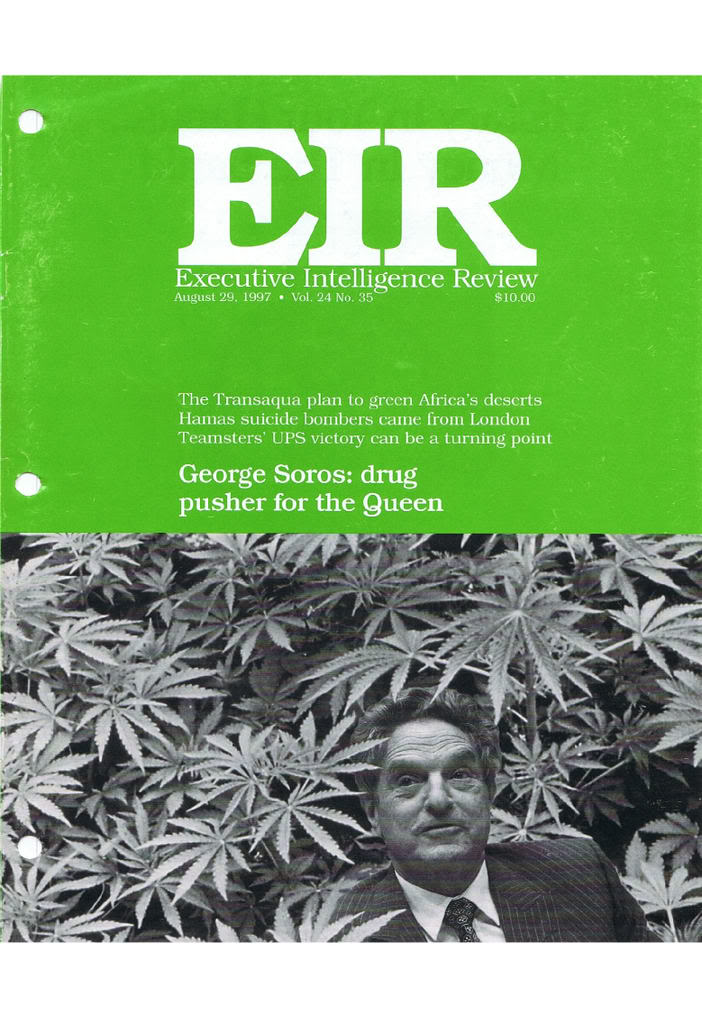

att- จำนวนข้อความ : 1075
Registration date : 08/10/2008
 Re: สิ่งที่ประเทศไทยต้องเจอในอนาคตอันใกล้
Re: สิ่งที่ประเทศไทยต้องเจอในอนาคตอันใกล้
<blockquote>

 </blockquote>
</blockquote>


 </blockquote>
</blockquote>
att- จำนวนข้อความ : 1075
Registration date : 08/10/2008
 Re: สิ่งที่ประเทศไทยต้องเจอในอนาคตอันใกล้
Re: สิ่งที่ประเทศไทยต้องเจอในอนาคตอันใกล้
<blockquote>


 </blockquote>
</blockquote>



 </blockquote>
</blockquote>
att- จำนวนข้อความ : 1075
Registration date : 08/10/2008
 Re: สิ่งที่ประเทศไทยต้องเจอในอนาคตอันใกล้
Re: สิ่งที่ประเทศไทยต้องเจอในอนาคตอันใกล้
<blockquote>


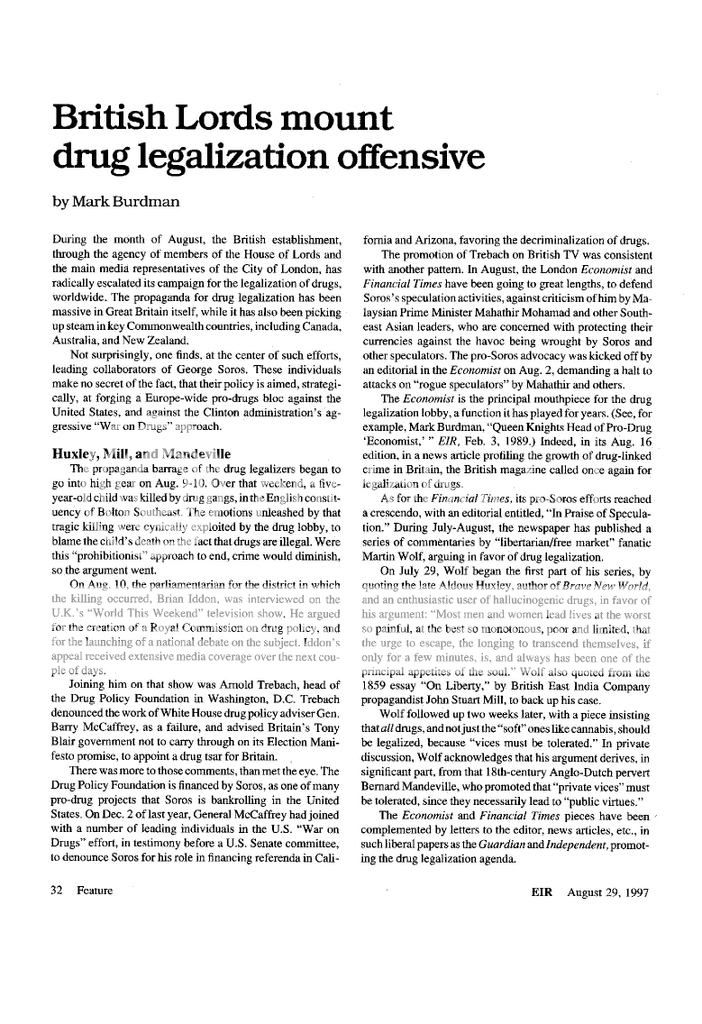 </blockquote>
</blockquote>



 </blockquote>
</blockquote>
att- จำนวนข้อความ : 1075
Registration date : 08/10/2008
 Re: สิ่งที่ประเทศไทยต้องเจอในอนาคตอันใกล้
Re: สิ่งที่ประเทศไทยต้องเจอในอนาคตอันใกล้
<blockquote>


 </blockquote>
</blockquote>



 </blockquote>
</blockquote>
att- จำนวนข้อความ : 1075
Registration date : 08/10/2008
 Re: สิ่งที่ประเทศไทยต้องเจอในอนาคตอันใกล้
Re: สิ่งที่ประเทศไทยต้องเจอในอนาคตอันใกล้
<blockquote>
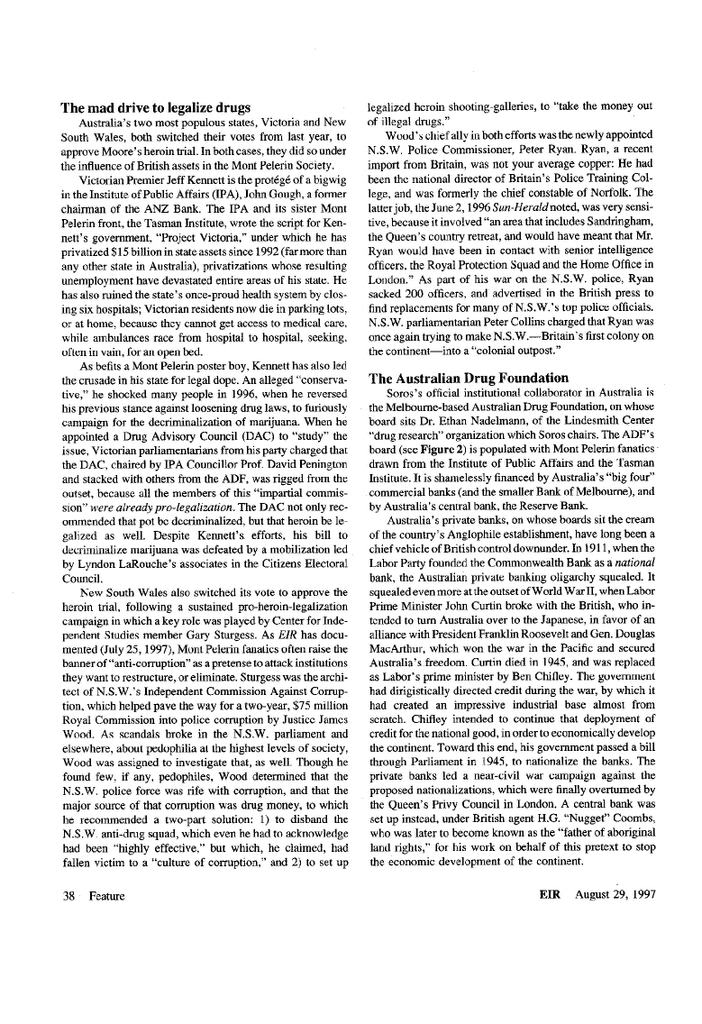
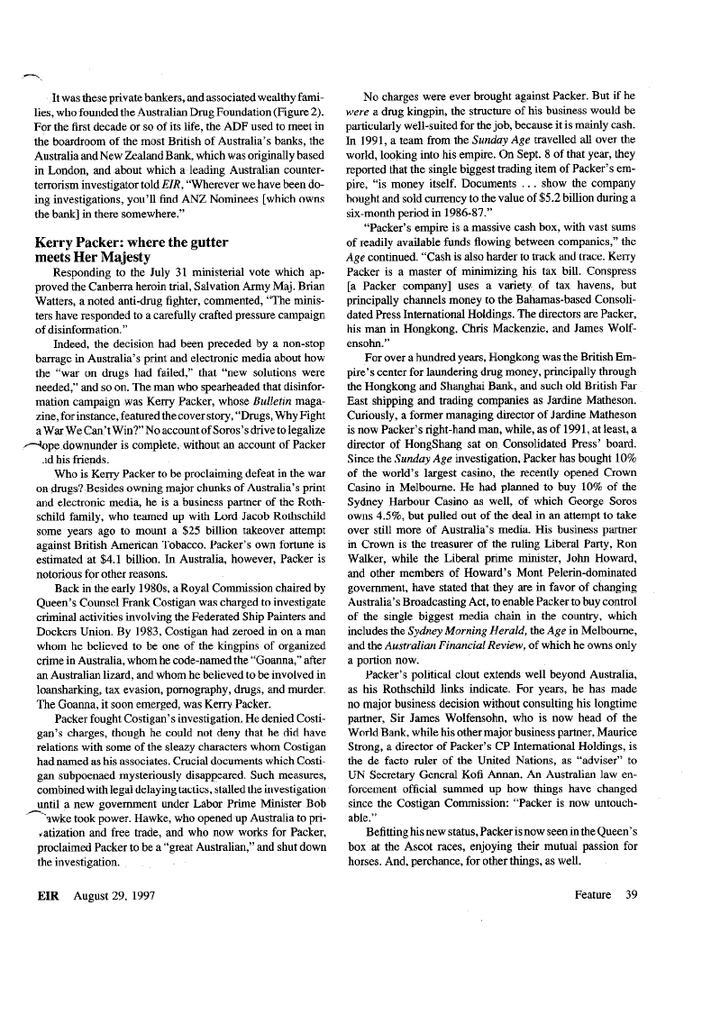
 </blockquote>
</blockquote>



 </blockquote>
</blockquote>
att- จำนวนข้อความ : 1075
Registration date : 08/10/2008
 Re: สิ่งที่ประเทศไทยต้องเจอในอนาคตอันใกล้
Re: สิ่งที่ประเทศไทยต้องเจอในอนาคตอันใกล้
<blockquote>


 </blockquote>
</blockquote>



 </blockquote>
</blockquote>
att- จำนวนข้อความ : 1075
Registration date : 08/10/2008
 Re: สิ่งที่ประเทศไทยต้องเจอในอนาคตอันใกล้
Re: สิ่งที่ประเทศไทยต้องเจอในอนาคตอันใกล้
<blockquote>

 </blockquote>
</blockquote>


 </blockquote>
</blockquote>
att- จำนวนข้อความ : 1075
Registration date : 08/10/2008
 Re: สิ่งที่ประเทศไทยต้องเจอในอนาคตอันใกล้
Re: สิ่งที่ประเทศไทยต้องเจอในอนาคตอันใกล้
<blockquote>


 </blockquote>
</blockquote>



 </blockquote>
</blockquote>
att- จำนวนข้อความ : 1075
Registration date : 08/10/2008
 Re: สิ่งที่ประเทศไทยต้องเจอในอนาคตอันใกล้
Re: สิ่งที่ประเทศไทยต้องเจอในอนาคตอันใกล้

| http://www.conflict-prevention.net/page.php?id=45&formid=72&action=show&articleid=678 http://www.isop.ucla.edu/eas/thisweek/12-10.htm 1991 Aung San Suu Kyi (b. 1945) received the Nobel Peace Prize. The daughter of Aung San, the leader of the Burmese struggle for independence from Britain, Aung San Suu Kyi had lived outside Burma for many years when she returned in 1988 to care for her sick mother. She quickly became the leader of the democratic movement opposed to the continuing military domination of Burma's government. The government placed her under house arrest from 1989 to 1995 and continued to restrict her movement after international pressure caused the regime to formally end her arrest. The Free Burma Coalition has a collection of web pages devoted to her. The Burma Project website (funded by the Soros Foundation) includes the videotaped speech she made in November 1999 to the United Nations Commission on Human Rights. http://www.soros.org/initiatives/bpsai/news/burmanet_20050808 OSI-Supported Website Promotes Burma Rights and Democracy Press Release August 5, 2005 <table style="padding-bottom: 10px;" border="0" cellpadding="0" cellspacing="0"><tr valign="top"><td>Contact: </td><td>Aung Myo Min myomin@cscoms.com +66-1-992-5293 </td></tr></table> MAE SOT, THAILAND, AND NEW DELHI, INDIA— A new website launched today aims to aid Burma’s democracy movement by opening channels of communication into one of the world’s most repressive states. The Burma Guide to Rights and Democracy (www.burmaguide.net ) is designed for easy access to a collection of resources for people interested in Burma’s future as a democratic country where the rights of all peoples are honored under the rule of law. News on Burma and tools for promoting a peaceful democratic transition are available in English, as well as the six different languages spoken in Burma (Burmese, Chin, Kachin, Karen, Mon, and Shan). The launch of BurmaGuide.Net comes on the eve of the 17th anniversary of the massive “8-8-88” pro-democracy uprising in Burma, when thousands of demonstrators were killed by the Burmese military junta. Today, the junta continues its repressive rule. By providing hundreds of summaries of key issues and reports that are crucial to the process of democratic transition, BurmaGuide.Net seeks to counter the junta’s efforts to restrict access to information. “Access to information is crucial for people to understand their rights, and to promote and defend them,” said Aung Myo Min, executive director of the Human Rights Education Institute of Burma, an organization based on the Burmese-Thai border that has helped manage research and translation for the project. “BurmaGuide.Net offers democracy and human rights resources for different peoples of Burma to in their own languages.” The website, which is funded by OSI's BurmaProject and the United States Agency for International Development , was developed in cooperation with the Burma Information and Technology Team and the Human Rights Education Institute of Burma. The Burmese-language version of this site is known as “Lanpya.Net” (lanpya means “guide” in Burmese), and offers access to a new Burmese Unicode font developed by the Burma Information and Technology Team, an organization of Burmese refugees based in New Delhi that will provide technological support for the website. The Unicode font will be accessible to many types of computer systems. “BurmaGuide.Net will be an important resource for both the Burmese Diaspora and people within Burma as internet access expands,” said Maureen Aung-Thwin, director of the Burma Project. “The process of creating the website and researching its content has also built new capacities among Burmese that will promote the country’s future democratic and economic development.” <blockquote>    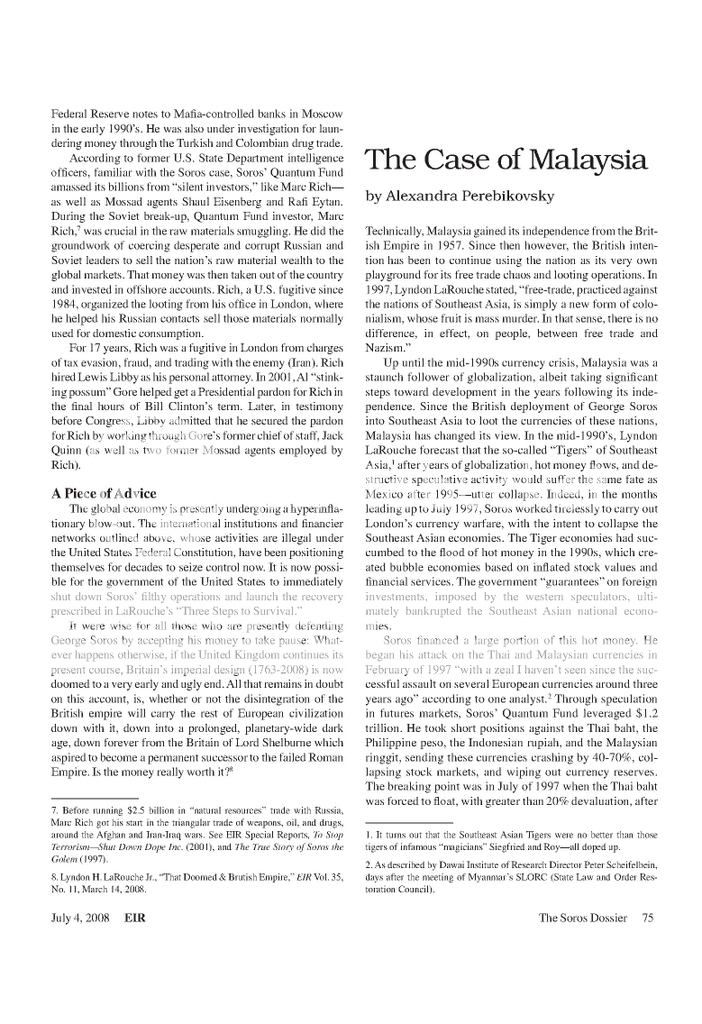 </blockquote> </blockquote> |

att- จำนวนข้อความ : 1075
Registration date : 08/10/2008
 Re: สิ่งที่ประเทศไทยต้องเจอในอนาคตอันใกล้
Re: สิ่งที่ประเทศไทยต้องเจอในอนาคตอันใกล้
<blockquote>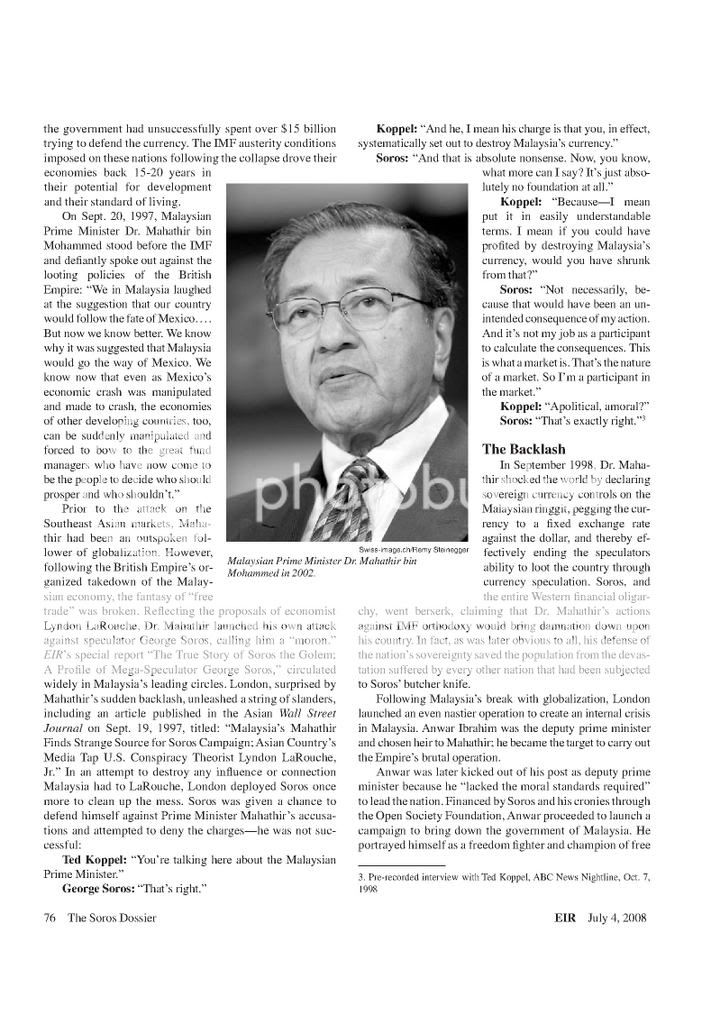
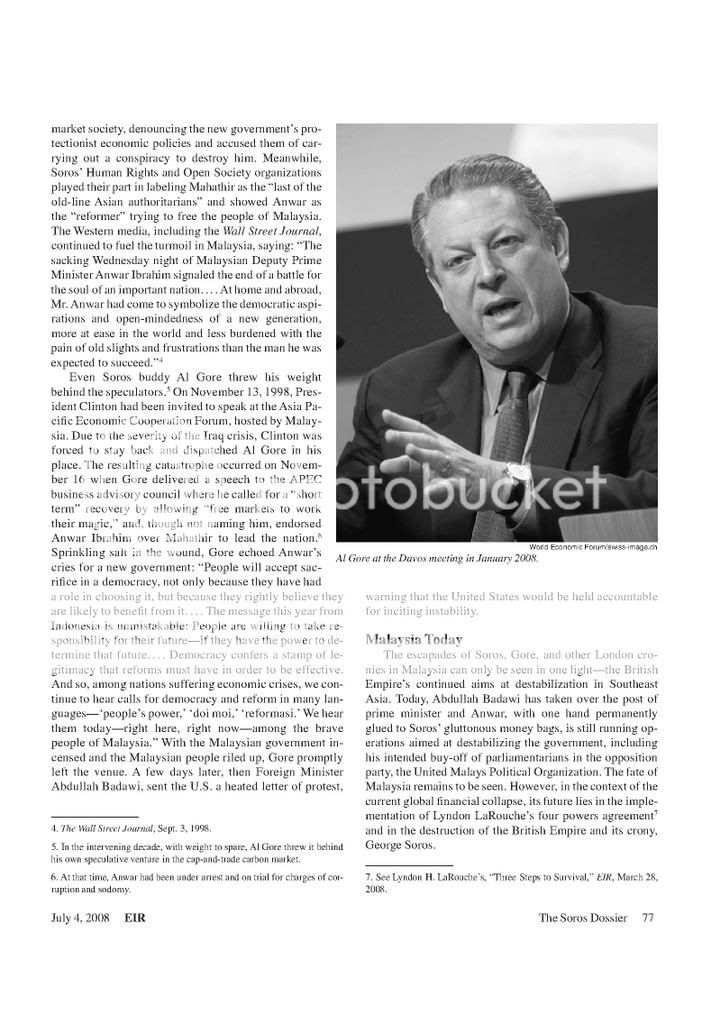

 </blockquote>
</blockquote>



 </blockquote>
</blockquote>
att- จำนวนข้อความ : 1075
Registration date : 08/10/2008
 Re: สิ่งที่ประเทศไทยต้องเจอในอนาคตอันใกล้
Re: สิ่งที่ประเทศไทยต้องเจอในอนาคตอันใกล้

http://www.manager.co.th/Local/ViewNews.aspx?NewsID=9520000022262
ชาวบ้าน “บันนังสตา-ธารโต” กว่า 500 รวมตัวค้านย้าย
ตชด.ชุดพลร่มออกนอกพื้นที่
ยะลา - ชาวบ้านในพื้นที่อำเภอบันนังสตาและธารโต
จังหวัดยะลากว่า 500 คนชุมนุมบริเวณหน้าศูนย์อำนวยการบริหารจังหวัดชายแดนภาคใต้
(ศอ.บต.) คัดค้านไม่ให้เจ้าหน้าที่ ตชด.ชุดพลร่มย้ายออกนอกพื้นที่
หลังมีข่าวทหารจะเข้าไปดูแลพื้นที่แทน
วันนี้ (26
ก.พ.) ที่บริเวณหน้าศูนย์อำนวยการบริหารจังหวัดชายแดนภาคใต้ (ศอ.บต.) อ.เมือง
จ.ยะลา ชาวบ้านจาก บ้านตลิ่งชัน บ้านฉลองชัย บ้านเขาน้ำตก และบ้านภัคดี 1 ภัคดี 2
ภัคดี 3 ในพื้นที่ อ.บันนังสตา และ อ.ธารโต จ.ยะลา จำนวน 500
คนเดินทางโดยรถยนต์กระบะ จำนวน 50 คันมาชุมนุมประท้วงเพื่อร้องขอความเป็นธรรมจาก
นายพระนาย สุวรรณรัฐ ผู้อำนวยการศูนย์อำนวยการบริหารจังหวัดชายแดนภาคใต้
(ศอ.บต.)
หลังจากชาวบ้านกลุ่มดังกล่าวทราบข่าวว่าทางการจะย้าย
เจ้าหน้าที่ตำรวจ ตชด.ชุดพลร่ม (หน่วยรบพิเศษ 2) ที่มาจาก อ.หัวหิน
จ.ประจวบคีรีขันธ์ ที่มาประจำอยู่ที่ฐานปฏิบัติการบ้านสายตาเอียด ต.ตลิ่งชัน
ออกนอกพื้นที่และจะมีเจ้าหน้าที่ทหารเข้าไปปฏิบัติหน้าที่ดูแลรักษาความ
ปลอดภัยภายในพื้นที่แทน ซึ่งการชุมนุมในครั้งนี้มีนายเวช หนูจีน ชาวบ้านจากพื้นที่
อ.บันนังสตา เป็นแกนนำในการชุมนุม
นายดอเล๊าะ มามะ หนึ่งในชาวบ้านที่มาชุมนุม กล่าวว่า หลังจากชาวบ้านทราบข่าวว่า
ทางการจะย้ายตำรวจตระเวนชายแดน ชุดพลร่ม
ที่ปฏิบัติหน้าที่ดูแลความปลอดภัยอยู่ในพื้นที่ ต.ตลิ่งชัน ต.เขื่อนบางลาง
อ.บันนังสตา และ ต.แม่หวาด อ.ธารโต จ.ยะลา ออกจากพื้นที่
และทางการจะนำเจ้าหน้าที่ทหารเข้าไปปฏิบัติหน้าที่แทน
ชาวบ้านในพื้นที่เกิดความไม่พอใจอย่างยิ่ง
โดยที่ผ่านมาเจ้าหน้าที่ตำรวจตระเวนชายแดนชุดดังกล่าวดูแลรักษาความ
ปลอดภัยให้กับชาวบ้านได้ดีอยู่แล้ว ทั้งชาวไทยพุทธ และชาวไทยมุสลิม
เข้าใจกันดีมากขึ้น ชาวบ้านมีความมั่นใจในความปลอดภัย
และเจ้าหน้าที่ตำรวจตระเวนชายแดนชุดนี้ มีความสนิทสนมกับชาวบ้านในพื้นที่มาก
หากมีการย้ายตำรวจตระเวนชายแดนชุดนี้ออกจากพื้นที่ไปแล้ว
คิดว่าชาวบ้านคงไม่ต้องทำมาหากิน
เพราะเกิดความไม่มั่นใจในความปลอดภัย
ทุกวันนี้ชาวบ้านสามารถออกไปกรีดยางได้
เพราะว่ามีตำรวจตระเวนชายแดนให้การดูแลรักษาความปลอดภัยให้
หากมีเจ้าหน้าที่ทหารเข้าไปปฏิบัติงานแทน
ชาวบ้านเกรงว่าจะต้องมีการเริ่มทำความรู้จักกับพื้นที่ใหม่
ความเป็นอยู่ก็จะไม่ต่อเนื่อง
ทางศูนย์อำนวยการบริหารจังหวัดชายแดนภาคใต้ได้ขอให้ตัวแทนชาวบ้าน จำนวน 10 คน
เข้าเจรจากับนายพระนาย สุวรรณรัฐ
ผู้อำนวยการศูนย์อำนวยการบริหารจังหวัดชายแดนภาคใต้ และนายประสิทธิ์ โอสถานนท์
รองผู้อำนวยศูนย์อำนวยการบริหารจังหวัดชายแดนภาคใต้
ชาวบ้านส่วนที่เหลือยังคงรวมตัวกันบริเวณหน้าศูนย์อำนวยการบริหารจังหวัดชายแดน ภาคใต้
เพื่อรอฟังคำตอบ หลังจากการเจรจาประมาณ 1 ชั่วโมง นายพระนาย สุวรรณรัฐ
ผู้อำนวยการศูนย์อำนวยการบริหารจังหวัดชายแดนภาคใต้
ได้รับปากกับกลุ่มชาวบ้านที่มาชุมนุมประท้วงว่า
จะไม่ย้ายตำรวจตระเวนชายแดนชุดดังกล่าวออกนอกพื้นที่
ชาวบ้านพอใจจึงยอมสลายการชุมนุมและแยกย้ายกันกลับบ้าน
แก้ไขล่าสุดโดย att เมื่อ Thu Feb 26, 2009 10:48 pm, ทั้งหมด 1 ครั้ง

att- จำนวนข้อความ : 1075
Registration date : 08/10/2008
 Re: สิ่งที่ประเทศไทยต้องเจอในอนาคตอันใกล้
Re: สิ่งที่ประเทศไทยต้องเจอในอนาคตอันใกล้
ทั้งตำรวจพลร่มและตำรวจตระเวนชายแดนเป็นหน่วยงานที่ถูกสร้างขึ้นในระยะพร้อมๆกัน
ในช่วงที่พล.ต.อ.เผ่า ศรียานนท์ เป็นอธิบดีตำรวจในทศวรรษ 2490 ในทางยุทธการ ตำรวจพลร่มจะขึ้นต่อ บช.ตชด.
แต่ในทางปฏิบัติ มีความเป็นเอกเทศสูง อันที่จริง พลร่มเป็น (ตามคำของ พิมพ์ไทย สมัย 2500)
"กำลังตำรวจสำคัญที่สุดในยุคจอมอัศวินเผ่า" ถูกสร้างขึ้นด้วยคำแนะนำและการช่วยเหลือด้านเงิน,
การฝึกและอาวุธจากองค์การซีไอเอ โดยผ่านบริษัทบังหน้า "ซีซับพลาย" (SEA Supply) ที่ซีไอเอตั้งขึ้น
ทำให้มีอาวุธยุทโธปกรณ์ ทันสมัยยิ่งกว่าทหารบกภายใต้สฤษดิ์คู่ปรับของเผ่าในสมัยนั้น เผ่าสร้างหน่วยงาน
"ตำรวจ" ที่เป็นมากกว่าตำรวจในลักษณะนี้อีกหลายหน่วย เช่น "ตำรวจยานยนต์"
(ซึ่งมีรถถังใช้!), ตำรวจรักษาดินแดน (ร.ด.) และกองบัญชาการตำรวจรักษาชายแดน
(บช.รช.) สองหน่วยหลังนี้ถูกรวมเข้าเป็นกองบัญชาการตำรวจตระเวนชายแดน ในปี
2498
พวกมีเครื่องแบบในเช้าวันนั้นล้วนแต่เป็นตำรวจทั้งสิ้นไม่ใช่ทหาร
เป็นที่ชัดเจนด้วยว่า ตำรวจเกือบทุกหน่วยถูกระดมมาร่วมรุมทำร้ายผู้ชุมนุมในเช้าวันนั้น อย่างไรก็ตาม
ผมเสนอว่ากำลังที่สำคัญที่สุดคือตำรวจแผนกปราบจลาจล 200 คนที่นำโดยสล้าง บุนนาค,
ตำรวจพลร่มและตำรวจตระเวนชายแดนหน่วยอื่นๆอีกไม่ต่ำกว่า 50-60 คน ซึ่งใช้อาวุธหนัก
เช่น ปืนไร้แรงสะท้อนถอยหลังและปืนครก และตำรวจหน่วย "สวาท" ทั้งแผนกอีก 45
คนผมได้พยายามแสดงให้เห็นว่าบทบาทของสล้างในวันที่ 6 ตุลาไม่ใช่บทบาทของเจ้าพนักงานระดับล่าง
ที่ทำตามคำสั่งแต่เป็นบทบาทของนักเคลื่อนไหวฝ่ายขวาที่มุ่งทำลายขบวนการนักศึกษา
(แบบเดียวกับจำลอง ศรีเมืองในช่วงนั้น) เช่นเดียวกันการระดมตำรวจพลร่มจากค่ายนเรศวรหัวหิน
ซึ่งมีหน้าที่ในการทำสงครามนอกแบบในชนบทเข้ามาปราบนักศึกษาในกรุงเทพฯเป็นเรื่องที่ผิดปกติ
และผิดวิธีปฏิบัติราชการอย่างเห็นได้ชัด แต่เป็นเรื่องที่เข้าใจได้ถ้าดูจากวิวัฒนาการของตำรวจตระเวนชายแดน
ที่มีลักษณะการเมืองสูง (highly politicized)
ในช่วงที่พล.ต.อ.เผ่า ศรียานนท์ เป็นอธิบดีตำรวจในทศวรรษ 2490 ในทางยุทธการ ตำรวจพลร่มจะขึ้นต่อ บช.ตชด.
แต่ในทางปฏิบัติ มีความเป็นเอกเทศสูง อันที่จริง พลร่มเป็น (ตามคำของ พิมพ์ไทย สมัย 2500)
"กำลังตำรวจสำคัญที่สุดในยุคจอมอัศวินเผ่า" ถูกสร้างขึ้นด้วยคำแนะนำและการช่วยเหลือด้านเงิน,
การฝึกและอาวุธจากองค์การซีไอเอ โดยผ่านบริษัทบังหน้า "ซีซับพลาย" (SEA Supply) ที่ซีไอเอตั้งขึ้น
ทำให้มีอาวุธยุทโธปกรณ์ ทันสมัยยิ่งกว่าทหารบกภายใต้สฤษดิ์คู่ปรับของเผ่าในสมัยนั้น เผ่าสร้างหน่วยงาน
"ตำรวจ" ที่เป็นมากกว่าตำรวจในลักษณะนี้อีกหลายหน่วย เช่น "ตำรวจยานยนต์"
(ซึ่งมีรถถังใช้!), ตำรวจรักษาดินแดน (ร.ด.) และกองบัญชาการตำรวจรักษาชายแดน
(บช.รช.) สองหน่วยหลังนี้ถูกรวมเข้าเป็นกองบัญชาการตำรวจตระเวนชายแดน ในปี
2498
พวกมีเครื่องแบบในเช้าวันนั้นล้วนแต่เป็นตำรวจทั้งสิ้นไม่ใช่ทหาร
เป็นที่ชัดเจนด้วยว่า ตำรวจเกือบทุกหน่วยถูกระดมมาร่วมรุมทำร้ายผู้ชุมนุมในเช้าวันนั้น อย่างไรก็ตาม
ผมเสนอว่ากำลังที่สำคัญที่สุดคือตำรวจแผนกปราบจลาจล 200 คนที่นำโดยสล้าง บุนนาค,
ตำรวจพลร่มและตำรวจตระเวนชายแดนหน่วยอื่นๆอีกไม่ต่ำกว่า 50-60 คน ซึ่งใช้อาวุธหนัก
เช่น ปืนไร้แรงสะท้อนถอยหลังและปืนครก และตำรวจหน่วย "สวาท" ทั้งแผนกอีก 45
คนผมได้พยายามแสดงให้เห็นว่าบทบาทของสล้างในวันที่ 6 ตุลาไม่ใช่บทบาทของเจ้าพนักงานระดับล่าง
ที่ทำตามคำสั่งแต่เป็นบทบาทของนักเคลื่อนไหวฝ่ายขวาที่มุ่งทำลายขบวนการนักศึกษา
(แบบเดียวกับจำลอง ศรีเมืองในช่วงนั้น) เช่นเดียวกันการระดมตำรวจพลร่มจากค่ายนเรศวรหัวหิน
ซึ่งมีหน้าที่ในการทำสงครามนอกแบบในชนบทเข้ามาปราบนักศึกษาในกรุงเทพฯเป็นเรื่องที่ผิดปกติ
และผิดวิธีปฏิบัติราชการอย่างเห็นได้ชัด แต่เป็นเรื่องที่เข้าใจได้ถ้าดูจากวิวัฒนาการของตำรวจตระเวนชายแดน
ที่มีลักษณะการเมืองสูง (highly politicized)
| http://www.photius.com/countries/thailand/national_security/thailand_national_security_border_patrol_police.html Thailand Border Patrol Police Developed in the 1950s with assistance from the United States Central Intelligence Agency, the paramilitary Border Patrol Police (BPP) has remained the country's most effective internal security force. Although technically part of the TNPD, the BPP has always enjoyed a great deal of basic autonomy within the national headquarters as well as in its multifaceted field operations. Because the royal family was a principal patron of the organization, the BPP developed the esprit de corps of an elite unit. This traditional relationship benefited both the palace and its paramilitary protectors. At the same time, the BPP retained direct links with the larger Royal Thai Army-- a relationship that afforded it an additional degree of political strength. Most BPP commanders were former army officers whose military ties were of considerable value in BPP operations. Charged with border security along some 4,800 kilometers of land frontiers, the BPP's mission included collecting information on the activities of smugglers, bandits, illegal immigrants, refugees, infiltrators, and communist insurgents. To fulfill its mission, it employed an extensive intelligence network and maintained surveillance over villages and farming districts that had a history of cross-border activities. When armed force was required, the BPP was able to respond effectively. Despite its modest size in comparison with the army, the BPP became a primary counterinsurgency force because of its training, motivation, and unique skills. Thirty-two-man platoons functioning as security teams formed the basic operating units of the BPP. Each platoon was supported by one or more heavy weapons platoons stationed at the regional and area police headquarters. A special police aerial reinforcement unit airlifted BPP platoons to troubled areas when an emergency arose. Relatively well armed with modern light infantry equipment, the BPP also benefited from training by United States Army Special Forces advisers, who helped establish an instruction program during the 1960s. The BPP served as an important adjunct to the Thai military and often operated under army (and sometimes marine corps) control during counterinsurgency operations. BPP units stationed along the Cambodian and Laotian borders following the Vietnamese invasion of Cambodia in 1979 often served as the first line of defense and bore the brunt of Vietnamese attacks. In order to carry out its primary intelligence mission, the BPP worked to establish rapport with remote area villagers and hill tribes. They engaged in civic action projects to gain the confidence and loyalty of rural peoples, building and operating more than 200 schools in remote areas and helping the army to construct offices for civilian administration. In addition, they established rural medical aid stations, gave farmers agricultural assistance, and built small airstrips for communication and transportation purposes. Responding to village complaints of banditry and harassment by elements the central government considered subversive, the BPP supported the development of a local law enforcement adjunct known as the Volunteer Defense Corps (VDC). Established in 1954, the corps was intended to provide law and order, much like a civilian militia responsible to local authorities, in the event of defense emergencies or natural disasters. The paramilitary VDC had the main responsibility for protecting local inhabitants from threats and intimidation by guerrillas who infiltrated the border provinces from neighboring Laos, Cambodia, and Malaysia. One of its chief tactics was to deny the insurgents access to the food and other supplies that made villages and farms favorite targets. VDC members received training from the BPP, and their effectiveness in both law enforcement and civic action was of considerable value to government goals. In the late 1980s, VDC strength was estimated at roughly 33,000, down from a peak of about 52,000 in 1980. Part of the reduction was absorbed by the formation of a new organization called the Thahan Phran. With a strength of about 14,000, the Thahan Phran was a volunteer irregular force deployed in active trouble spots along the Cambodian and Burmese borders. The organization followed a military structure and had 32 regiments and 196 companies. The Thahan Phran gained considerable publicity and incurred significant casualties during Vietnamese bombardments and local assaults along the Cambodian border. Data as of September 1987 NOTE: The information regarding Thailand on this page is re-published from The Library of Congress Country Studies and the CIA World Factbook. No claims are made regarding the accuracy of Thailand Border Patrol Police information contained here. All suggestions for corrections of any errors about Thailand Border Patrol Police should be addressed to the Library of Congress and the CIA. |
แก้ไขล่าสุดโดย att เมื่อ Thu Feb 26, 2009 10:56 pm, ทั้งหมด 1 ครั้ง

att- จำนวนข้อความ : 1075
Registration date : 08/10/2008
 Re: สิ่งที่ประเทศไทยต้องเจอในอนาคตอันใกล้
Re: สิ่งที่ประเทศไทยต้องเจอในอนาคตอันใกล้
ซีไอเอเล็งไทยสู้ภัยก่อการร้าย ทุ่ม100ล.หนุนตั้งโรงเรียนด้านการข่าว
โดย ผู้จัดการรายวัน 28 ตุลาคม 2547 08:16 น.
ผู้จัดการรายวัน
- ซีไอเอ ทุ่ม 100 ล้านบาท ช่วยไทยตั้งโรงเรียนด้านการข่าว หลังเล็งเห็นไทย
อยู่ในภูมิภาคที่เริ่มมีภัยคุกคามจากการก่อการร้าย ขณะที่ไทยเอง ก็ต้องการยกระดับงานด้านการข่าว
ให้เทียบเท่าระดับสากล โดยมีกองบัญชาการตำรวจสันติบาลเป็นแม่งานใหญ่
วานนี้ (27 ต.ค.) ที่กองบัญชาการตำรวจสันติบาล
พล.ต.ท.ปรุง บุญผดุง ผู้บัญชาการตำรวจสันติบาล (ผบช.ส.)
เปิดเผยถึงการปรับปรุงการบริหารจัดการของ กองบัญชาการตำรวจสันติบาล เพื่อให้เกิดประสิทธิภาพมากยิ่งขึ้น ว่า
ตามนโยบายของ สำนักงานตำรวจแห่งชาติ (สตช.) ที่จะให้สันติบาลเป็นแม่แบบในการดำเนินงาน การด้านข่าวกรอง
โดยมอบหมายให้เป็นเจ้าภาพด้านการข่าวของตำรวจ แบบบูรณาการ
ดังนั้นจึงได้จัดตั้งโรงเรียนด้านการข่าวขึ้นมาเป็นการเฉพาะ โดยมีวัตถุประสงค์หลัก 2 ประการคือ
การพัฒนาองค์ความรู้ด้านการข่าว และการนำองค์ความรู้ดังกล่าวมาฝึกอบรมและสนับสนุนการปฏิบัติงาน
ของเจ้าหน้าที่เพื่อให้เกิดความทัดเทียมกับระดับสากล
"โรงเรียนการข่าวที่กำลังอยู่ระหว่างการดำเนินการก่อสร้างนั้น จะประกอบไปด้วยพื้นที่ฝึกซ้อมการปฏิบัติการ
ทั้งการรักษาความปลอดภัย การเจรจาต่อรอง การต่อต้านข่าวกรอง และการอบรมด้านการข่าว
ซึ่งไม่เพียงแต่จะจัดอบรมให้ตำรวจสันติบาลเท่านั้น แต่พร้อมจะสนับสนุนหน่วยงานอื่นด้วย
โดยได้รับการสนับสนุน ด้านงบประมาณทั้งการออกแบบและปลูกสร้าง จากมิตรประเทศ โดยไม่มีเงื่อนไข
ขณะเดียวกันก็ได้รับอนุมัติที่ดินจากราชพัสดุจำนวน 80ไร่ บริเวณริมถนนศรีสมาน-ปากเกร็ด จ"นนทบุรี
ซึ่งจะแล้วเสร็จประมาณเดือนกันยายน ปีหน้า"
ส่วนการข่าวด้านความมั่นคง ในพื้นที่กรุงเทพมหานคร หลังเกิดเหตุ ความไม่สงบ ในพื้นที่จังหวัดชายแดน
ภาคใต้โดยเฉพาะการสลายม็อบหน้า สภ.อ.ตากใบ จนเป็นเหตุทำให้มีผู้เสียชีวิตและบาดเจ็บจำนวนมาก
พล.ต.ท.ปรุง กล่าวว่า จากการข่าวเหตุการณ์ยังไม่มีอะไรที่บ่งบอกถึงความผิดปกติ โดยมีเฉพาะในพื้นที่
จ.นราธิวาส ที่ได้รับรายงานว่า มีการเคลื่อนไหว ของกลุ่มนักศึกษา กลุ่มองค์กรอิสระ และญาติของผู้เสียชีวิต
และได้รับบาดเจ็บ ที่พยายามออกมาเคลื่อนไหวเพื่อหวังตอบโต้เจ้าหน้าที่ แต่เพื่อความไม่ประมาท
ทางสันติบาลได้ติดตามข่าวการก่อเหตุร้ายอย่างใกล้ชิดต่อไป
รายงานข่าวแจ้งว่า หลังจากที่ พล.ต.ท.ปรุง ได้เคยสนทนากับเจ้าหน้าที่ระดับสูงของ ซีไอเอ
ที่ประจำการอยู่ในประเทศไทยและได้เล่าให้ฟังถึงโครงการจัดตั้งโรงเรียนการข่าว
ทำให้เจ้าหน้าที่รายดังกล่าวเกิดความสนใจและเสนอของบสนับสนุนไปยังสำนักงานใหญ่ประเทศสหรัฐอเมริกา
โดยใช้เวลาเพียงสองสัปดาห์ ก็ได้รับการอนุมัติเงินงบประมาณสนับสนุน 100 ล้านบาท
สำหรับการสนับสนุนงบประมาณ ซีไอเอ ให้เหตุผลว่า เนื่องจากประเทศไทย
อยู่ในภูมิภาคที่เริ่มมีภัยจากการก่อการร้ายสากลซึ่งถือเป็นภัยที่คุกคามประชาคมโลก
ไม่เฉพาะแต่ประเทศใดประเทศหนึ่ง ดังนั้น การพัฒนาขีดความสามารถด้านการข่าวจึงถือเป็นสิ่งสำคัญ
ที่จะทำให้ไทยสามารถรับมือกับการก่อการร้ายสากลได้เป็นอย่างดี
อันจะช่วยให้เกิดความมั่นคงในภูมิภาคเอเชียตะวันออกเฉียงใต้ ได้อีกทางหนึ่งด้วย
http://www.manager.co.th/Daily/ViewNews.aspx?NewsID=9470000073293
โดย ผู้จัดการรายวัน 28 ตุลาคม 2547 08:16 น.
ผู้จัดการรายวัน
- ซีไอเอ ทุ่ม 100 ล้านบาท ช่วยไทยตั้งโรงเรียนด้านการข่าว หลังเล็งเห็นไทย
อยู่ในภูมิภาคที่เริ่มมีภัยคุกคามจากการก่อการร้าย ขณะที่ไทยเอง ก็ต้องการยกระดับงานด้านการข่าว
ให้เทียบเท่าระดับสากล โดยมีกองบัญชาการตำรวจสันติบาลเป็นแม่งานใหญ่
วานนี้ (27 ต.ค.) ที่กองบัญชาการตำรวจสันติบาล
พล.ต.ท.ปรุง บุญผดุง ผู้บัญชาการตำรวจสันติบาล (ผบช.ส.)
เปิดเผยถึงการปรับปรุงการบริหารจัดการของ กองบัญชาการตำรวจสันติบาล เพื่อให้เกิดประสิทธิภาพมากยิ่งขึ้น ว่า
ตามนโยบายของ สำนักงานตำรวจแห่งชาติ (สตช.) ที่จะให้สันติบาลเป็นแม่แบบในการดำเนินงาน การด้านข่าวกรอง
โดยมอบหมายให้เป็นเจ้าภาพด้านการข่าวของตำรวจ แบบบูรณาการ
ดังนั้นจึงได้จัดตั้งโรงเรียนด้านการข่าวขึ้นมาเป็นการเฉพาะ โดยมีวัตถุประสงค์หลัก 2 ประการคือ
การพัฒนาองค์ความรู้ด้านการข่าว และการนำองค์ความรู้ดังกล่าวมาฝึกอบรมและสนับสนุนการปฏิบัติงาน
ของเจ้าหน้าที่เพื่อให้เกิดความทัดเทียมกับระดับสากล
"โรงเรียนการข่าวที่กำลังอยู่ระหว่างการดำเนินการก่อสร้างนั้น จะประกอบไปด้วยพื้นที่ฝึกซ้อมการปฏิบัติการ
ทั้งการรักษาความปลอดภัย การเจรจาต่อรอง การต่อต้านข่าวกรอง และการอบรมด้านการข่าว
ซึ่งไม่เพียงแต่จะจัดอบรมให้ตำรวจสันติบาลเท่านั้น แต่พร้อมจะสนับสนุนหน่วยงานอื่นด้วย
โดยได้รับการสนับสนุน ด้านงบประมาณทั้งการออกแบบและปลูกสร้าง จากมิตรประเทศ โดยไม่มีเงื่อนไข
ขณะเดียวกันก็ได้รับอนุมัติที่ดินจากราชพัสดุจำนวน 80ไร่ บริเวณริมถนนศรีสมาน-ปากเกร็ด จ"นนทบุรี
ซึ่งจะแล้วเสร็จประมาณเดือนกันยายน ปีหน้า"
ส่วนการข่าวด้านความมั่นคง ในพื้นที่กรุงเทพมหานคร หลังเกิดเหตุ ความไม่สงบ ในพื้นที่จังหวัดชายแดน
ภาคใต้โดยเฉพาะการสลายม็อบหน้า สภ.อ.ตากใบ จนเป็นเหตุทำให้มีผู้เสียชีวิตและบาดเจ็บจำนวนมาก
พล.ต.ท.ปรุง กล่าวว่า จากการข่าวเหตุการณ์ยังไม่มีอะไรที่บ่งบอกถึงความผิดปกติ โดยมีเฉพาะในพื้นที่
จ.นราธิวาส ที่ได้รับรายงานว่า มีการเคลื่อนไหว ของกลุ่มนักศึกษา กลุ่มองค์กรอิสระ และญาติของผู้เสียชีวิต
และได้รับบาดเจ็บ ที่พยายามออกมาเคลื่อนไหวเพื่อหวังตอบโต้เจ้าหน้าที่ แต่เพื่อความไม่ประมาท
ทางสันติบาลได้ติดตามข่าวการก่อเหตุร้ายอย่างใกล้ชิดต่อไป
รายงานข่าวแจ้งว่า หลังจากที่ พล.ต.ท.ปรุง ได้เคยสนทนากับเจ้าหน้าที่ระดับสูงของ ซีไอเอ
ที่ประจำการอยู่ในประเทศไทยและได้เล่าให้ฟังถึงโครงการจัดตั้งโรงเรียนการข่าว
ทำให้เจ้าหน้าที่รายดังกล่าวเกิดความสนใจและเสนอของบสนับสนุนไปยังสำนักงานใหญ่ประเทศสหรัฐอเมริกา
โดยใช้เวลาเพียงสองสัปดาห์ ก็ได้รับการอนุมัติเงินงบประมาณสนับสนุน 100 ล้านบาท
สำหรับการสนับสนุนงบประมาณ ซีไอเอ ให้เหตุผลว่า เนื่องจากประเทศไทย
อยู่ในภูมิภาคที่เริ่มมีภัยจากการก่อการร้ายสากลซึ่งถือเป็นภัยที่คุกคามประชาคมโลก
ไม่เฉพาะแต่ประเทศใดประเทศหนึ่ง ดังนั้น การพัฒนาขีดความสามารถด้านการข่าวจึงถือเป็นสิ่งสำคัญ
ที่จะทำให้ไทยสามารถรับมือกับการก่อการร้ายสากลได้เป็นอย่างดี
อันจะช่วยให้เกิดความมั่นคงในภูมิภาคเอเชียตะวันออกเฉียงใต้ ได้อีกทางหนึ่งด้วย
http://www.manager.co.th/Daily/ViewNews.aspx?NewsID=9470000073293
แก้ไขล่าสุดโดย att เมื่อ Thu Feb 26, 2009 10:59 pm, ทั้งหมด 1 ครั้ง

att- จำนวนข้อความ : 1075
Registration date : 08/10/2008
 Re: สิ่งที่ประเทศไทยต้องเจอในอนาคตอันใกล้
Re: สิ่งที่ประเทศไทยต้องเจอในอนาคตอันใกล้
| http://www.thaimisc.com/freewebboard/php/vreply.php?user=mscc2&topic=1477 ปัญหากรณีเขมร ภาคใต้ ความขัดแย้งทางการเมือง แบงค์ปลอม โจรสลัด เป็นเรื่องเดียวกัน ? .. ปัญหากรณีเขมร ภาคใต้ ความขัดแย้งทางการเมือง แบงค์ปลอม โจรสลัด เป็นเรื่องเดียวกัน มีรากเหง้ามาจากการแย่งชิงจุดยุทธศาสตร์ที่สำคัญของโลก แหล่งอาหาร แหล่งน้ำมัน และภูมิยุทธศาสตร์ที่ช่วยลดต้นทุนจากระบบโลจิสติก ของมหาอำนาจตะวันตก ด้วยการอาศัยการสร้างความแตกแยกระหว่างสถาบันหลัก ซึ่งมีทหารปกป้องดูแลกับ กลุ่มนักการเมือง เพื่อทำการล้มล้างระบบอำนาจแบบเดิม แล้วสร้างระบบอำนาจขึ้นใหม่ ที่ทำให้ง่ายต่อตะวันตกในการแทรกตัวเข้ามาครอบครอง จุดยุทธศาสตร์ที่สำคัญคือ ประเทศไทย แห่งนี้ เพื่อดำเนินการแยกย่อยไม่ให้มหาอำนาจอีกกลุ่มที่ต้องการอยู่อย่างสันติห้าประการ ในการรวมตัวสร้างความอำนาต่อรองที่เข้มแข็งโดยใช้เงินสกุลเดียวกันเหมือนก๊กอียู เพราะหากสามารถแยกย่อยเราได้ โดยสนับสนุนนักการเมืองขายชาติเป็นเป้าล่อ ให้สถาบันหวังชนะสงครามในระดับ ยุทธการ แต่สงครามในระดับยุทธศาสตร์ เขาสามารถทำให้สังคมโลกสนับสนุนเขาเพราะการเข้าไปยุ่งเกี่ยวนั้นกระทบระบอบ ประชาธิปไตย เหตุการณ์ในอนาคตจะบานปลายคล้ายๆ กรณีเนปาล ที่ดึงสถาบันมายุ่งเกี่ยวกับการเมือง ในกรณีเขมรหากสร้างความขัดแย้งจนเกิดสงครามยกระดับปัญหาสู่สากล เมื่อเกิดการตัดสินหลักฐานเราเสียเปรียบเพราะปี ๔๓ เราไปเซ็นยอมรับใช้แผนที่ มาตราสองแสนเป็นกรอบในการแบ่งปัน เมื่อตัดสินมีการปักปันในหลักเจ็ดสิบสาม เราจะสูญเสียดินแดนในทะเลที่อุดมสม บูรณ์ด้วน้ำมัน รัฐบาลที่มีทหารหนุนหลังก็จะเสียรังวัด เพราะทำให้ไทยเสียดินแดนและผลประโยชน์ของชาติ กรณีภาคใต้หากมีเหตุการณ์ในช่องแคบเฮอร์มุช กระแสมุสลิมจะรุนแรง อันวาผู้นำฝ่ายค้าน จะใช้กระแสดังกล่าวและขุดคดีที่ผู้นำในอนาคตคือนาจิ๊บ มีส่วนผัวพันธ์คดีฆาตกรรมนางแบบสาวชาวมองโกเลีย จนเป็นรัฐบาลมาเลเซีย ไทยมาเก็จะคุยปัญหาภาคใต้ไม่รู้เรื่อง อันวาจะสนับสนุนการแบ่งแยกดินแดนไทย อย่างเปิดเผยโดยอ้างว่าดูแลพี่น้อง มุสลิม ตามข้อบังคับ โอไอซี ในขณะที่ไทยบอกว่า มาเลรุกล้ำอธิปไตยไทย เกิดสงครามระหว่างกัน กลุ่มก่อการร้ายสามารถยกระดับปัญหา ภายในประเทศไทยเป็นปัญหาระดับสากล การฆาตกรรมรายวัน เมื่อนานเข้าจำนวนจะมาก จึงเป็นปัญหาด้านสิทธิมนุษยชน ยูเอ็นเข้าแทรกแซง ให้ไทย มาเลสงบศึก แล้วให้คนในพื้นที่ เลือกที่จะอยู่กับไทย มาเล ท้ายสุดก็จะแยกตัวเป็นอิสระเหมือนติมอร์ การเมืองก็ทำให้สังคมแตกแยก เป็นเหนือ อิสาน ภาคกลางรวมภาคใต้ตอนบน และภาคใต้ตอนล่าง เหลือแค่ตัวคะตะไล้ และเงื่อนเวลาเท่านั้น ไทยจะแตกเป็นสี่ประเทศเป็นอย่างน้อย ถ้าคนไทยไม่รีบแก้ไขถอดชนวน ไม่ให้โรดทูไคซิสนี้เกิดขึ้น ในอนาคตตามข้อตกลง ดับบิวที่โอ อัตราภาษีจะเป็นศูนย์ การแยกย่อยเราจะทำให้มหาอำนาจอีกขั้วไม่สามารถใช้ประโยชน์ได้ เพราะสามารถกีดกันทางด้านการค้าที่ไม่ใช่รูปแบบภาษีได้ นั่นก็คือเขาสามารถปิดกั้นโอกาสความเจริญของไทย และกลุ่มเอเชียนั่นเอง โดย สุมาอี้ [27 ธ.ค. 2551 , 15:27:23 น.] |

att- จำนวนข้อความ : 1075
Registration date : 08/10/2008
 Re: สิ่งที่ประเทศไทยต้องเจอในอนาคตอันใกล้
Re: สิ่งที่ประเทศไทยต้องเจอในอนาคตอันใกล้

http://www.matichon.co.th/news_detail.php?newsid=1235567791&grpid=05&catid=42
วันที่ 25 กุมภาพันธ์ พ.ศ. 2552 เวลา 21:30:30 น. มติชนออนไลน์
พระบรมราโชวาท"ในหลวง"ทรงให้ตร.เป็นแบบอย่างที่ดี แบ่งปันอำนาจ ปฏิบัติหน้าที่เต็มกำลัง
พระบาทสมเด็จพระเจ้าอยู่หัวพระราชทานพระบรมราโชวาท ตร.ใหม่ ทรงให้เป็นแบบอย่างที่ดี
สร้างความสุข-ปลอดภัยให้ปชช. แบ่งปันอำนาจ ความรับผิดชอบความดีความชอบตามตำแหน่งหน้าที่โดยเต็มกำลัง
เมื่อเวลา 17.15 น. วันที่ 25 ก.พ. พระสมเด็จพระเจ้าอยู่หัว เสด็จ
ลง ณ อาคารเอนกประสงค์ วังไกลกังวล อำเภอหัวหิน จังหวัดประจวบคีรีขันธ์
พระราชทานกระบี่แก่ร้อยตำรวจตรี ที่สำเร็จการศึกษาจากโรงเรียนนายร้อยตำรวจ
ประจำปีการศึกษา 2550
ในโอกาสนี้ พระบาทสมเด็จพระเจ้าอยู่หัว พระราชทานพระบรมราโชวาท ความว่า
ข้าพเจ้ามีความยินดีที่ได้มอบกระบี่แก่ผู้สำเร็จการศึกษาจากโรงเรียนนายร้อยตำรวจ
ขอแสดงความชื่นชมกับทุกคนที่ได้รับความสำเร็จในการศึกษาและได้รับเกียรติเป็นนายตำรวจสัญญาบัตร
เป็นผู้มีอำนาจมีเกียรติและมีความรับผิดชอบสูงเพราะเป็นทั้งกำลังและผู้นำในการพิทักษ์คุ้มครอง
พร้อมทั้งเสริมสร้างความสุข ความเรียบร้อยและความปลอดภัยให้แก่ประเทศและประชาชน
การที่จะปฏิบัติหน้าที่ดังกล่าวให้สำเร็จด้วยดีได้นอกจากนายตำรวจจะต้องมีขีดความรู้ความสามารถสูงแล้ว
ยังต้องได้รับความร่วมมือจากผู้ใต้บังคับบัญชาเป็นอย่างดีด้วย
เพราะฉะนั้นนายตำรวจทุกคนจึงต้องประพฤติตนปฏิบัติงานให้เป็นแบบอย่างที่ดี
และต้องสร้างขวัญกำลังใจให้แก่ผู้ใต้บังคับบัญชาอย่างทั่วถึงด้วยการแบ่งปันอำนาจ ความรับผิดชอบ
และความดีความชอบที่มีตามสมควรแก่ตำแหน่งหน้าที่ ความรู้ความสามารถ
และผลสำเร็จของงาน เมื่อผู้ใต้บังคับบัญชาศรัทธาเชื่อถือในผู้นำ
และมั่นใจว่างานที่ทำจะไม่เหน็ดเหนื่อยสูญเปล่าก็จะให้ความร่วมมือโดยเต็มใจ
และตั้งใจปฏิบัติหน้าที่โดยเต็มกำลัง งานทุกส่วนของตำรวจก็จะดำเนินไปอย่างมีประสิทธิภาพ
ตำรวจแต่ละคนก็จะเจริญก้าวหน้าในหน้าที่การงาน ประชาชนก็จะอยู่เย็นเป็นสุข
และประเทศชาติก็จะมีความมั่นคงได้อย่างแน่นอน
ขออวยพรให้นายตำรวจใหม่ทุกนายและทุกท่านที่มาร่วมในพิธีนี้ มีความสุข ความเจริญ มีชัยจนทั่วทุกเมื่อทั่วกัน

att- จำนวนข้อความ : 1075
Registration date : 08/10/2008
หน้า 8 จาก 9 •  1, 2, 3, 4, 5, 6, 7, 8, 9
1, 2, 3, 4, 5, 6, 7, 8, 9 
หน้า 8 จาก 9
Permissions in this forum:
คุณไม่สามารถพิมพ์ตอบ|
|
|






